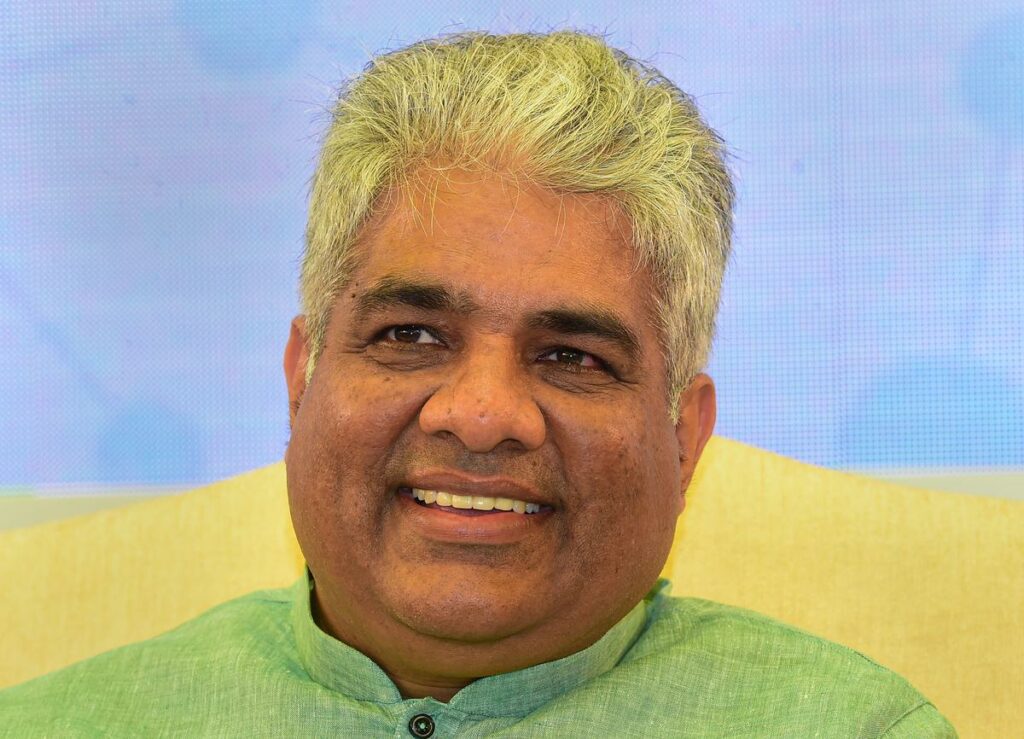![]()
In an apparent indication that the implementation of the four labour codes will be delayed further, majority of the Central Trade Unions, during their recent discussions with Union Labour Minister Bhupender Yadav, have urged the Centre to withdraw the four codes. Though Rashtriya Swayamsevak Sangh-affiliated trade union Bharatiya Mazdoor Sangh (BMS) supported the Code on Social Security and the Code on Wages, it opposed the Industrial Relations Code and the Occupational Safety, Health and Working Conditions Code in the meeting with Mr. Yadav. The BMS, along with the Opposition’s trade unions, also sent a letter to Prime Minister Narendra Modi opposing the the Occupational Safety, Health and Working Conditions Code.
Mr. Yadav completed his separate discussions with all the Central Trade Unions (CTUs) by the end of September. He had also met various organisations representing employers. A source in the Ministry said the Minister will meet a few more associations of the employers in the coming days.
Leaders of 10 CTUs reviewed the developments at a meeting here last week and decided to maintain their positions. All India Trade Union Congress general secretary Amarjeet Kaur told The Hindu that all the 10 CTUs opposed the labour codes in their meetings with the Minister. “We have demanded the Centre to stop separate discussions on the labour codes. They did not consult anyone at the time of drafting these codes or passing them in Parliament. Even the objections raised by the Parliament Standing Committee on Labour was ignored. Now, whatever discussions are to be held, it should be held together with all CTUs,” Ms. Kaur said.
The trade unions, including the BMS, have also demanded that the Centre immediately convene the Indian Labour Conference (ILC). “The ILC, as an effective tripartite mechanism, is not functioning under this government. We have been demanding that the ILC must be called immediately to discuss the issues of the workers,” she added.
‘No reply from Minister’
Trade unions said Mr. Yadav did not reply to their objections to the codes. “We have given clause-by-clause objections to the four labour codes. The Minister said he will get back. But as of now, we have not received any replies on our objections. We reiterated our demand that the codes should not be implemented. We have opposed the way rules are being brought for these codes in a piecemeal manner,” said Hind Mazdoor Sabha general secretary Harbhajan Singh Sidhu.
The BMS had joined the Opposition camp in opposing the Occupational Safety, Health and Working Conditions Code. The CTUs sent a resolution passed by them in a joint meeting facilitated by the International Labour Organisation (ILO) to Mr. Modi. They said the code was against the ILO conventions in which India is also a signatory. “We also strongly urge the government of India to revisit, re-examine and completely revise the Occupational Safety, Health and Working Conditions Code, 2020 in line with the core OSH conventions, namely C155 and C187. The said code should be inclusive, universal in coverage, prevention-focused, progressive and human centric. The tripartite advisory system must be replaced by a statutory tripartite mechanism strictly adhering to C144, which is already ratified by India. The government of India must duly consult the social partners, using social dialogue mechanism on a top priority. Here it is pertinent to urge the government of India to strengthen the bipartite and tripartite dialogues, ensuring effective and proper participation of the trade unions,” the resolution, also signed by the BMS, said.
How useful was this post?
- Share review with rating here: Google Review
We are providing practical training (Labor Laws, Payroll, Salary Structure, PF-ESI Challan) and Labor Codes, Payroll Consultant Service & more:
- HR Generalist Practical Training + Certificate
- Labor Law + Payroll Practical Training + Certificate
- HR Analytics Practical Training + Certificate
- Labor Code, 2020 (Crash Course) + Certificate
- Advance Excel Practical Training + Certificate
- Disciplinary Proceeding & Domestic Enquiry – Practical Training + Certificate
- PoSH Act, 2013 (Sexual Harassment Of Women At Workplace & Vishaka Guidelines) – Practical Training + Certificate
- Compensation & Benefits – Practical Training + Certificate
- Industrial Relations – Practical Training + Certificate
- Labour Code (2019 & 2020) With Latest Updates | Labour Bill (Labour-Law-Practical-Training)
- PF – ESI Consultant Service
- Labor Law Consultant | Compliance Management | HR & Payroll Outsourcing
Get Latest HR, IR, Labor Law Updates, Case Studies & Regular Updates: (Join us on Social Media)
- Telegram Channel: The One Clik
- Whatsapp Group: https://wa.me/919033016939
- Facebook: The One Clik
- Linkedin: The One Clik
- Instagram: oneclik_hr_management
- YouTube: The One Clik
Disclaimer: All the information on this website/blog/post is published in good faith, fair use & for general informational purposes only and is not intended to constitute legal advice.

